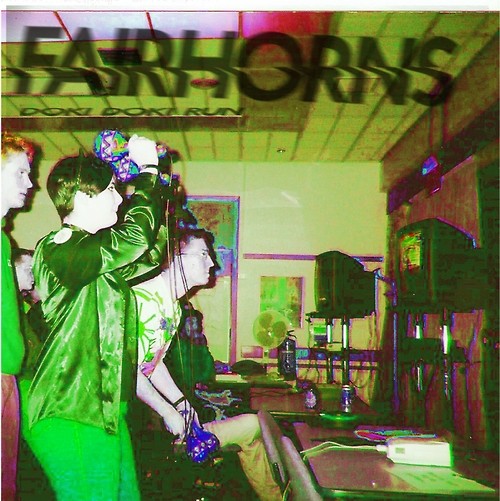
From the opening galactic, house-y groove of Seod explicating the undeniable influence of the '80s (the decade to have encapsulated Bainbridge's formative years) amidst this prog odyssey of sorts becomes a simple joy (again, of sorts) as we're affronted with an abridged sound to be blurted out from The Power Plant were Andy Mackay and Frankie Knuckles hopping to the very same Steve Reich-inspired jam beyond rattling windowpanes. Vocally, although sparse the malleable shuffle of the segueing Swingin' Party (yeah, a gently tweaked re-record made the final tracklisting...) swiftly evidences with an inescapable clarity the inevitable parallel between Bainbridge's restrained, almost spectral articulations and those of the dearly departed Arthur Russell, another artist of course to have amassed his most critical of acclaim within the aforesaid timeframe. For World, You Need A Change Of Mind is, quite unabashedly, entrenched in all things '80s and so much so that were it personified in corporeal format you'd envisage it in sunglasses at night, adorned in some luminous glare of lycra. A souped-up 'n' sultry R'n'B rework of Anita Dobson's Anyone Can Fall In Love (of '86) inarguably stretches Bainbridge's infatuation to an exasperating tautness and indeed at three tracks and two covers in, lightly veiled reservations over actual relevance rear inquisitive heads.
Well, Gee Up still kicks like a randy mule reared on the fertile soils of funk/ soul that's been given an inhumane thwack with the old rhythm stick, its bass bulbous, brash and bent; its guitars fleet of foot and driven by the propulsive gusto of the lines spacked out so effortlessly by Nile Rodgers whilst the bright Sun Ra Arkestra-ish sax appeal of That's Alright, born unconventionally into a frenzied whirl of brass, recalls a meeting of the mutilated encephalons of Andy Borowitz, Richard Stannard and Flava Flav. In fact its success may perceivably stem from an absence of Bainbridge's persistent Russell emulation which comes to a garish prominence on the dislocated synthpop-by-numbers stint that is Cyan. Significantly however – and far from strangely – amidst the interpretations and imitations, in harking back to days of yore Bainbridge slackens his grasp on – and of – the contemporary to incur a dissatisfying knee-jerk reaction to, or possibly repulsion from, what becomes a narcissistic exploration of another man's youth. Jerking knees were expected from these raw jives yet to find oneself kicking back at Bainbridge whilst his artistic vision seems all but confounded by protanopia and obfuscated by illusion just feels utterly disabusing.
























